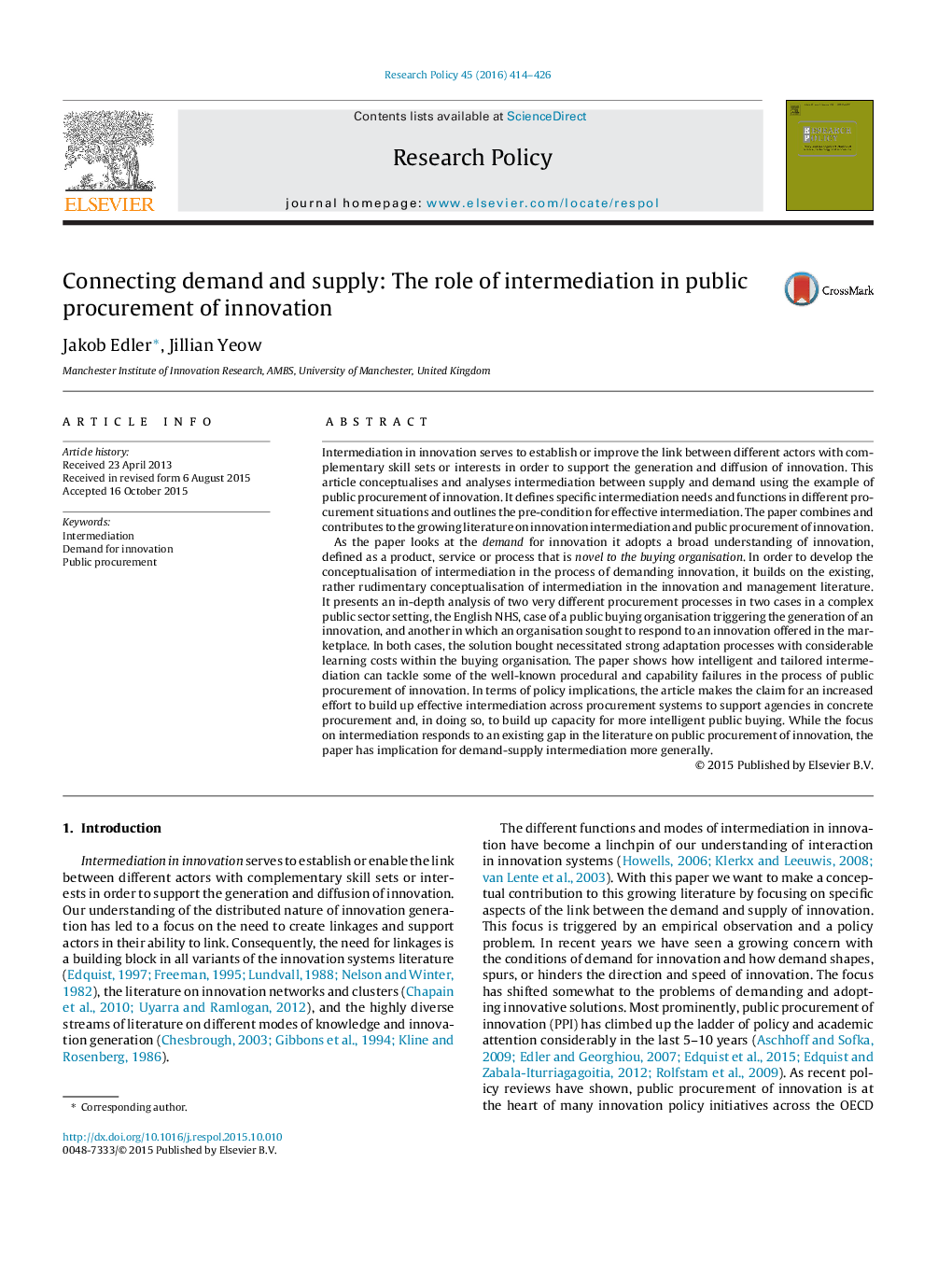| Article ID | Journal | Published Year | Pages | File Type |
|---|---|---|---|---|
| 10482859 | Research Policy | 2016 | 13 Pages |
Abstract
As the paper looks at the demand for innovation it adopts a broad understanding of innovation, defined as a product, service or process that is novel to the buying organisation. In order to develop the conceptualisation of intermediation in the process of demanding innovation, it builds on the existing, rather rudimentary conceptualisation of intermediation in the innovation and management literature. It presents an in-depth analysis of two very different procurement processes in two cases in a complex public sector setting, the English NHS, case of a public buying organisation triggering the generation of an innovation, and another in which an organisation sought to respond to an innovation offered in the marketplace. In both cases, the solution bought necessitated strong adaptation processes with considerable learning costs within the buying organisation. The paper shows how intelligent and tailored intermediation can tackle some of the well-known procedural and capability failures in the process of public procurement of innovation. In terms of policy implications, the article makes the claim for an increased effort to build up effective intermediation across procurement systems to support agencies in concrete procurement and, in doing so, to build up capacity for more intelligent public buying. While the focus on intermediation responds to an existing gap in the literature on public procurement of innovation, the paper has implication for demand-supply intermediation more generally.
Keywords
Related Topics
Social Sciences and Humanities
Business, Management and Accounting
Business and International Management
Authors
Jakob Edler, Jillian Yeow,
